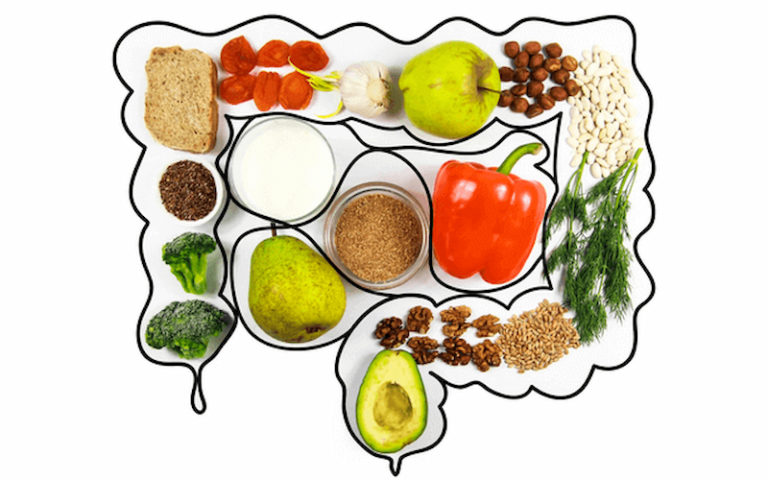Fasting is a centuries-old practice that has a fundamental role in many cultures and faiths, despite its recent popularity. Fasting is defined as abstaining from all or some meals or beverages for a certain time. There are numerous methods for fasting. In general, the fasting time varies between 24 and 72 hours. On the other hand, intermittent fasting entails cycling between eating and fasting phases that can last anywhere from a few hours to a few days. Fasting has been demonstrated to provide a variety of health advantages, ranging from weight loss to improved cognitive function. Some of the essential benefits of fasting are discussed below:

- Decrease Insulin Resistance to Stimulate Blood Sugar Control
Fasting has been shown in several trials to improve blood sugar management, which might be especially beneficial for people at risk of diabetes. For example, a study of ten persons with type 2 diabetes found that short-term intermittent fasting reduced blood sugar levels considerably. Meanwhile, another study indicated that intermittent fasting and alternate-day fasting were just as efficient at lowering insulin resistance as calorie restriction. Insulin resistance can be reduced by increasing your body’s sensitivity to insulin, transporting glucose more efficiently from your bloodstream to your cells. The possible blood sugar-lowering benefits of fasting might help keep your blood sugar stable, minimizing blood sugar spikes and crashes. However, according to some medical research, fasting can affect blood sugar levels in both genders. The intensity of the effect varies according to age and heredity. For example, three-week research found that alternate-day fasting harmed women’s blood sugar regulation while not affecting males.
2. Reduced inflammation, which improves all over health.
While acute inflammation is a normal immune response that helps the body fight infection, chronic inflammation can have serious health consequences. According to research, inflammation has been linked to the development of chronic diseases like heart disease, cancer, and rheumatoid arthritis. Conversely, certain studies have shown fasting to help reduce inflammation and promote improved health.
3. Fasting improved heart health by improving blood pressure, good cholesterol, and triglycerides
Heart disease is the largest cause of mortality globally, accounting for around 31.5 percent of all fatalities. One of the most effective methods to minimize your risk of heart disease is to change your food and lifestyle. According to several studies, including fasting in your daily routine may be advantageous to your heart health. A little research found that fasting on alternate days for eight weeks lowered “bad” LDL cholesterol and blood triglycerides by 25% and 32%, respectively.
4. Prevents Neurodegenerative Problems and Improves Brain Mechanism
Several studies have revealed that fasting may profoundly influence brain function, even though most research is restricted to animal studies. According to one research, intermittent fasting for 11 months increased both brain function and structure in mice. Other animal research has found that fasting can improve cognitive performance by protecting brain health and increasing nerve cell production. In addition, fasting may benefit the prevention of neurodegenerative illnesses since it can help reduce inflammation. According to animal research, fasting may protect against and enhance outcomes for illnesses including Alzheimer’s and Parkinson’s disease.

5. Restricting calorie intake and increasing metabolism to aid weight loss
Many dieters turn too fast to lose weight quickly and easily. Abstention from all or specific meals and beverages should theoretically reduce your overall calorie consumption, resulting in enhanced weight reduction over time. Short-term fasting has also been shown to promote metabolism by boosting levels of the neurotransmitter norepinephrine, which may help with weight reduction. Over 12–24 weeks, one study found that whole-day fasting might reduce body weight by up to 9% and reduce body fat. In addition, fasting was more effective than calorie restriction in promoting fat loss while maintaining muscular tissue.
6. The Hormone Secretion Increases That Helps in Muscle Growth, Metabolism, Weight Loss, and Muscle Strength
Human growth hormone (HGH) is a protein hormone that affects various bodily functions. This important hormone is involved in growth, metabolism, weight reduction, and muscular strength, according to studies.
In multiple studies, it is demonstrated fasting helps in boosting HGH naturally. In addition to this, fasting may assist in maintaining stable blood sugar and insulin levels throughout the day. It helps in optimizing HGH levels. Some studies suggested that maintaining high insulin levels can lower HGH levels.
7. May Help Prevent Cancer and Improve Chemotherapy’s Effectiveness
Fasting may help treat and prevent cancer, according to animal and test-tube research. For example, one mouse research discovered that fasting on alternate days helped prevent tumor growth. Similarly, test-tube research found that fasting cancer cells for multiple cycles were as efficient as chemotherapy in delaying tumor development and increasing the efficacy of chemotherapy treatments against cancer formation.
Some of the side and safety effects
Despite the vast list of potential health advantages, fasting may not suit everyone. If you have diabetes or have low blood sugar, fasting can cause severe spikes and falls in your blood sugar levels. If you have any underlying health concerns or intend to fast for more than 24 hours, you must see your doctor first. Fasting is also not suggested for elderly individuals, teens, or underweight persons without medical supervision. If you decide to attempt fasting, keep hydrated and eat nutrient-dense meals throughout your feeding intervals to get the most out of the experience. It is recommended to consult your health wellness center specialist before fasting. If you’re fasting for an extended time, try to avoid strenuous physical activity and obtain enough rest.

Final Words
If you decide to attempt fasting, keep hydrated and eat nutrient-dense meals throughout your feeding intervals to get the most out of the experience.
If you’re fasting for an extended time, try to avoid strenuous physical activity and obtain enough rest.
FAQ
- What type of fasting is most effective?
Individuals who monitor and respond to their bodies’ hunger cues are more likely to succeed at meal skipping. People who practice intermittent fasting in this manner eat when they are hungry and skip meals when not. Meal skipping is believed to be a more natural method of fasting than other strategies.
2. Is there a limit to how long one can go without eating?
According to some studies, the human body can survive for 8 to 21 days without food and drink and up to two months if appropriate water is available. However, hunger strikes in the modern era have shed light on starvation.






